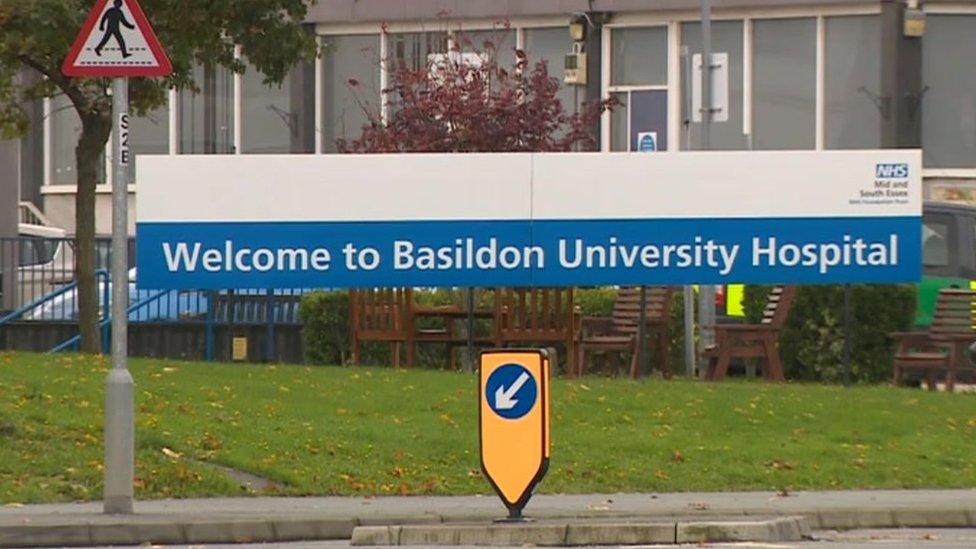Basildon: Labour MP says hospital 'failing' women over pain relief
- Published
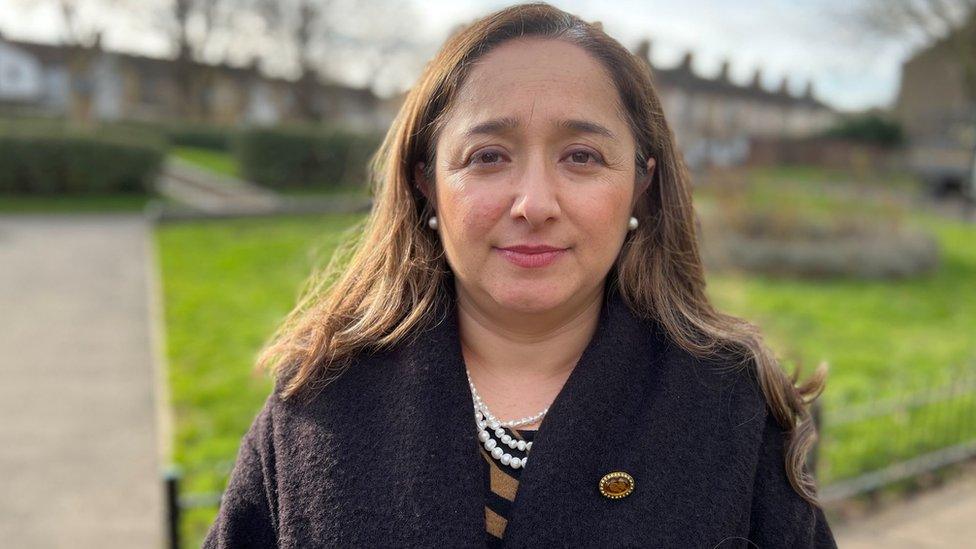
Feryal Clark MP, a Labour shadow health minister, met the women at a cafe in Thurrock
A Labour shadow health minister has told a group of mothers that a hospital's under-pressure maternity unit is "failing" women every day.
Feryal Clark MP met the women after Basildon University Hospital in Essex once again suspended the use of gas and air pain relief.
One expectant mother, under Basildon's care, said she is considering changing where she gives birth.
A hospital spokesman said giving "the best care" was a top priority.
Ms Clark, who spoke to the women at a cafe in nearby Thurrock, said the unit was "failing mothers day in, day out, and something needs to be done".
"It's heart breaking how poor the services are at the moment; Basildon is unable to provide women with the basics - gas and air," said Ms Clark.
"Maternity services across the country are failing women."
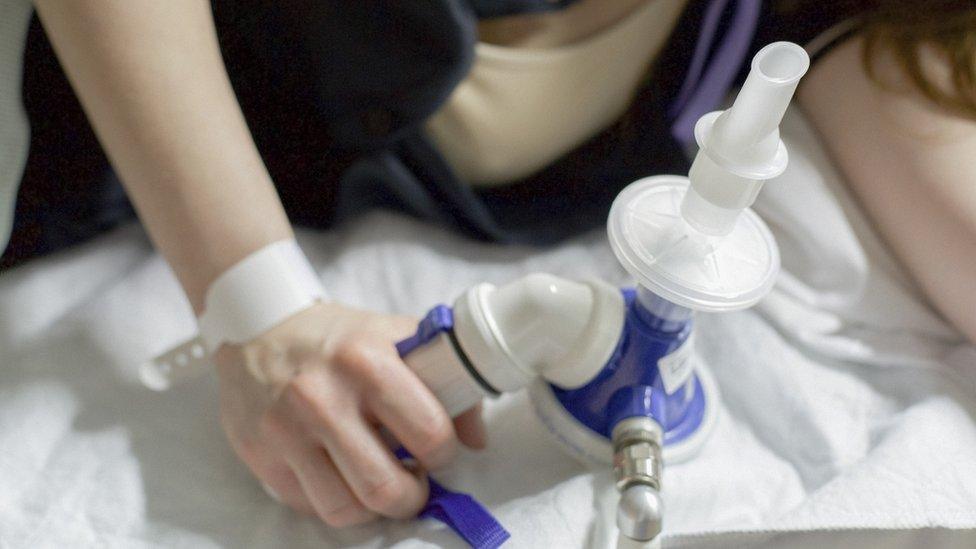
The Mid and South Essex NHS Foundation Trust has said there has been no harm to mothers and babies due to the increased levels of nitrous oxide in the unit
Nitrous oxide levels of almost 3,000 parts per million (ppm) were discovered during routine testing in the unit in June 2021.
The workplace exposure limit is 100ppm.
The Mid and South Essex NHS Foundation Trust apologised to staff after waiting until October 2022 to inform them of the breach.
The medical mixture, Entonox, was suspended in December while a new ventilation system was installed, and again suspended last month after discrepancies in further test results.
Acute exposure to nitrous oxide can lead to anaemia, due to the vitamin B12 depletion, and has been linked to fertility issues.
Other hospitals in England, including Ipswich and the Princess Alexandra in Harlow, external, also withdrew Entonox but have since restored it.
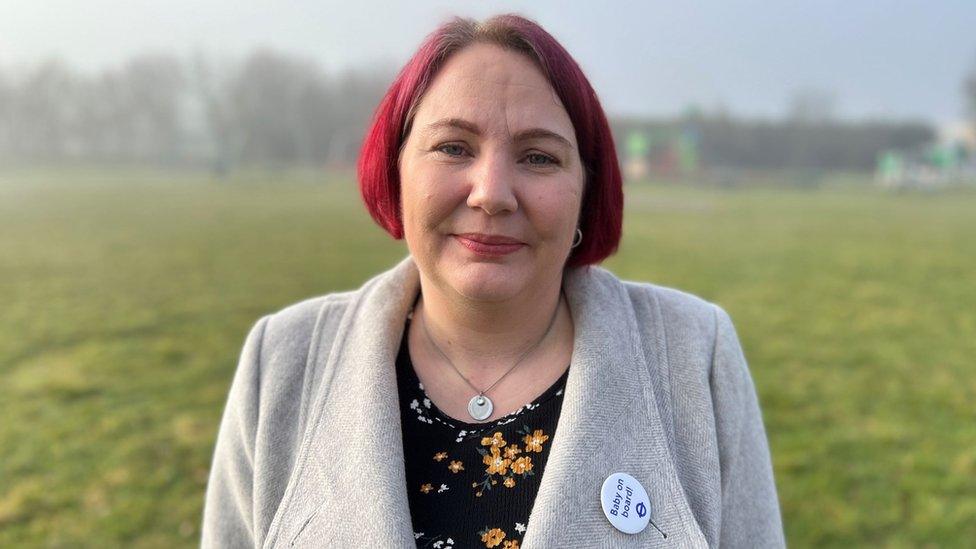
Ana Tormey, who is 19 weeks pregnant, says she is considering trying to switch to Darent Valley Hospital in Dartford
Ana Tormey is 19 weeks pregnant, and despite being under an "amazing" community midwife at Basildon, she said she is considering a change of hospital or home birth, because of the issue.
"It genuinely terrifies me because that's the only option I was really looking for," said the 36-year-old mortgage broker administrator, from Corringham.
"This is the only child I am going to have and I want to be cognisant and have that experience."
Basildon Hospital delivers up to 350 babies each month.
In the most recent Care Quality Commission (CQC) report inspectors said the unit "did not have enough maternity staff, external with the right qualifications, skills, training and experience to keep women safe from avoidable harm".
The same CQC report also said staff "worked together as a team to benefit women" and to "provide good care".
The trust says 18 newly qualified midwives have been recruited since the inspection.
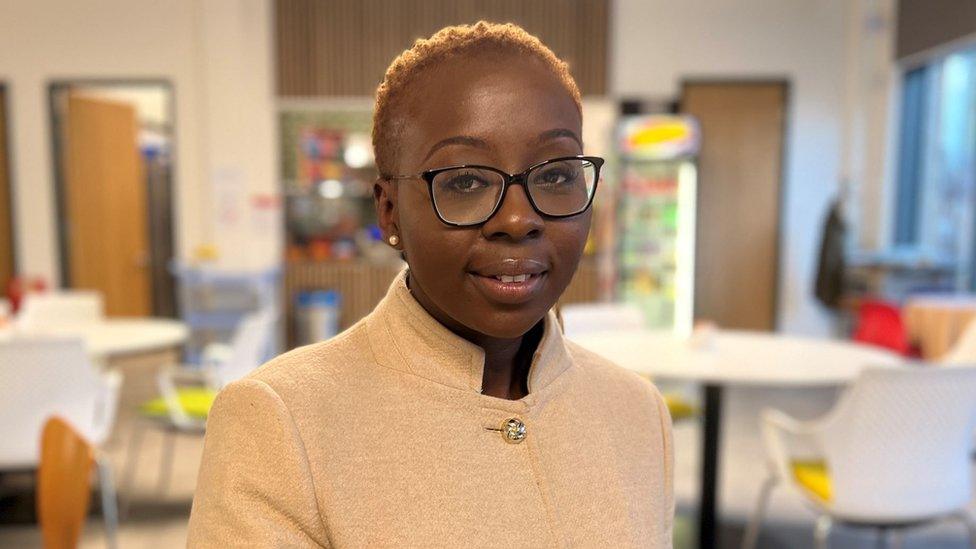
Irene Muma says the removal of gas and air is creating a "lot of anxiety" among local women
Irene Muma, 32, who runs Black Working Mothers Network, said there was a "lack of trust" within her community of maternity care.
The HR business partner from Grays, who gave birth at Basildon in 2020, also said the removal of Entonox denied women "choice" and would create "a lot of anxiety".
The latest CQC report did, however, note the hospital's "service leaders had a good understanding of the populations they served".
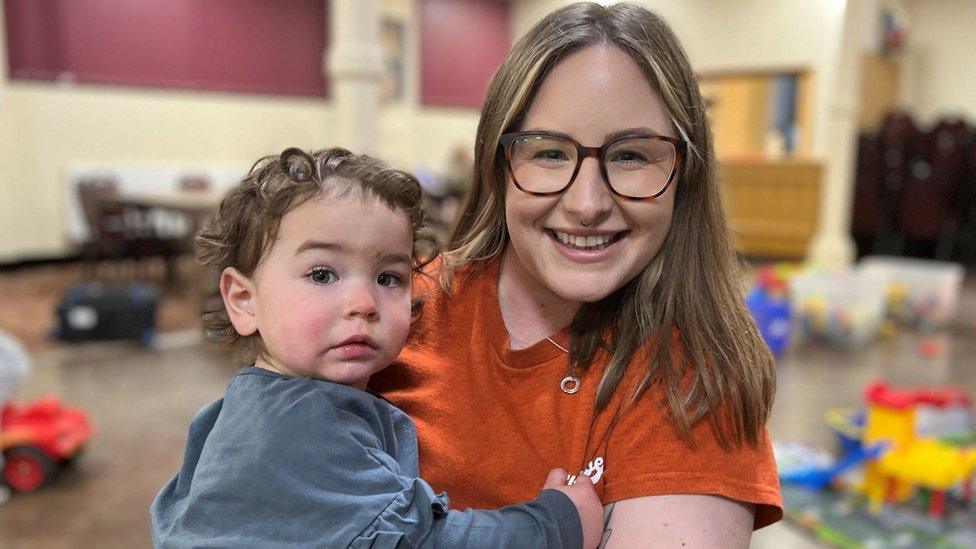
Katie Rippe said she had a "very positive" experience at Basildon
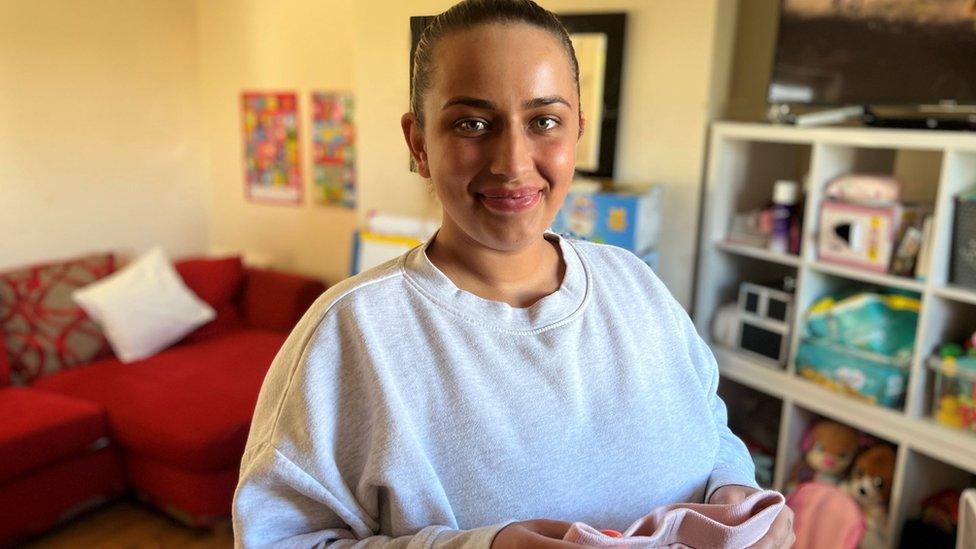
Lillie Swinden gave birth to her daughter in 2021 but said she would not use Basildon again following issues pre-labour and after birth with her Caesarean section wound
Katie Rippe, who gave birth to three children at Basildon in the past five years, said she had a "very positive" experience and said staff were "very attentive".
The 31-year-old, from Chafford Hundred, who taught hypo-birthing techniques, said she empathises with anyone denied gas and air, but added: "I couldn't imagine being in that situation myself and feeling one of my choices had been taken away from me."
Lillie Swinden, 24, a cleaner from Stanford-le-Hope, gave birth to her daughter in 2021 and said she would not have got through her "difficult" experience without gas and air.
Agnes, who is from Poland and now lives in Grays, gave birth to her son Thomas at Basildon in November before the pain relief was suspended.
The 39-year-old had an emergency Caesarean section, and said she had mixed experiences with the staff, including the "nicest" anaesthetist, but felt communication with families needed to improve.
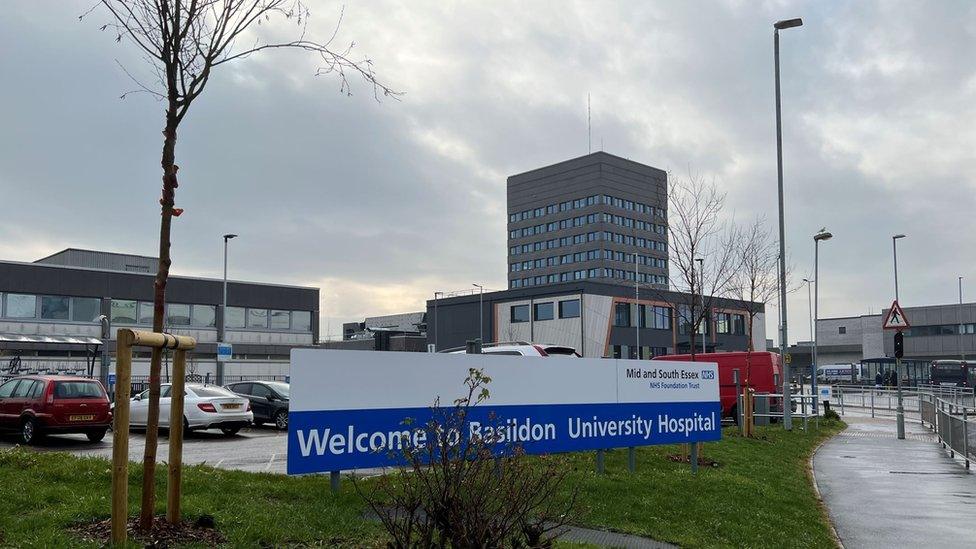
The trust that runs Basildon University Hospital says the care and experience of women and birthing people is a "top priority"
South Basildon and East Thurrock Conservative MP Stephen Metcalfe said: "I completely understand the concerns being raised by expectant mothers, but have been assured that alternative pain relief measures are in place."
The hospital has previously said it would contact all expectant mothers to discuss other pain relief options.
A trust spokesman encouraged anyone with specific concerns or feedback to get in touch and said: "We know that we don't always get it right, but safety and giving the best care and experience to women and birthing people, are the maternity unit's top priorities."
A Department of Health and Social Care spokesman said it was "working to make the NHS the safest place in the world to give birth".
The government said it spent an extra £127m to improve maternity staffing last year.

Find BBC News: East of England on Facebook, external, Instagram, external and Twitter, external. If you have a story suggestion email eastofenglandnews@bbc.co.uk, external
- Published16 January 2023
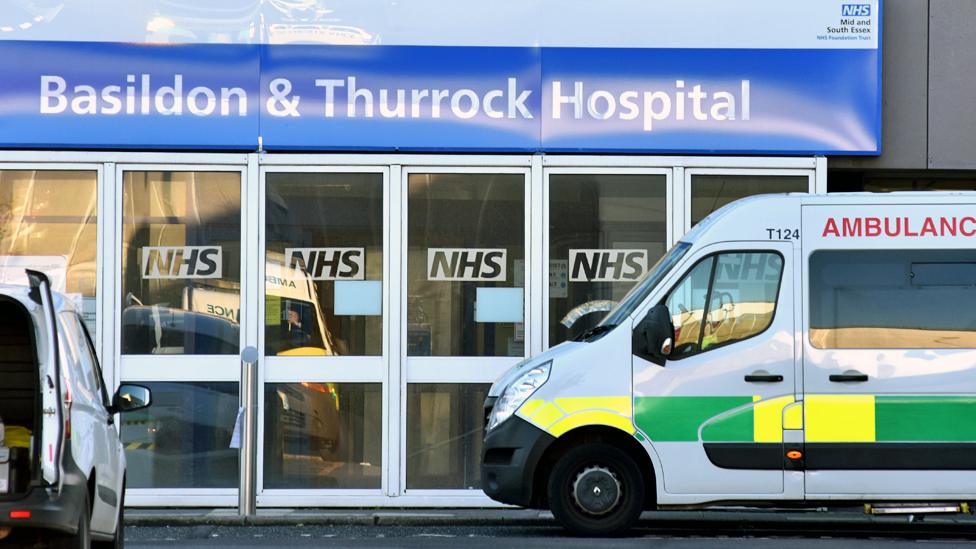
- Published1 December 2022
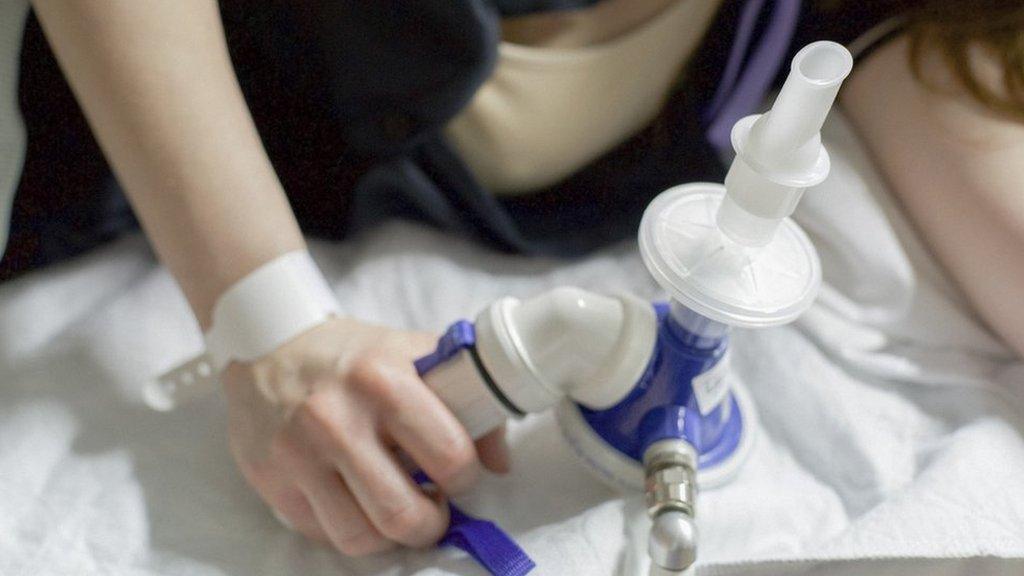
- Published27 March 2022
